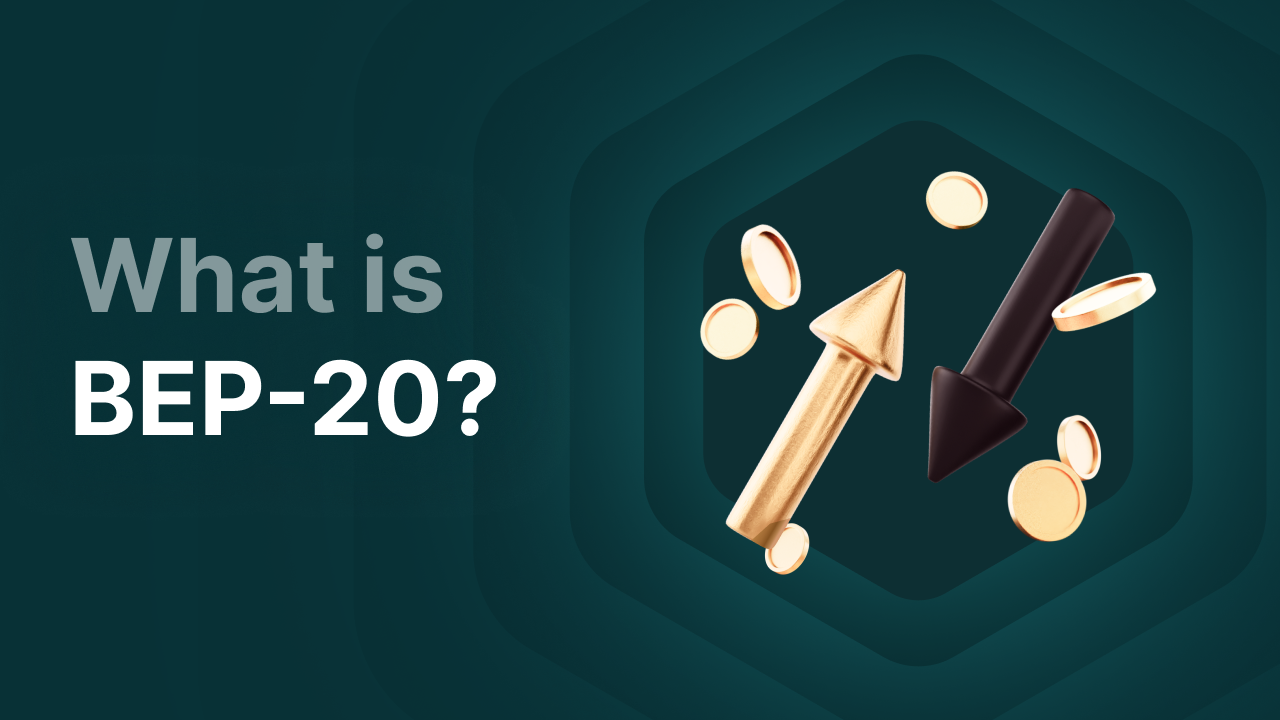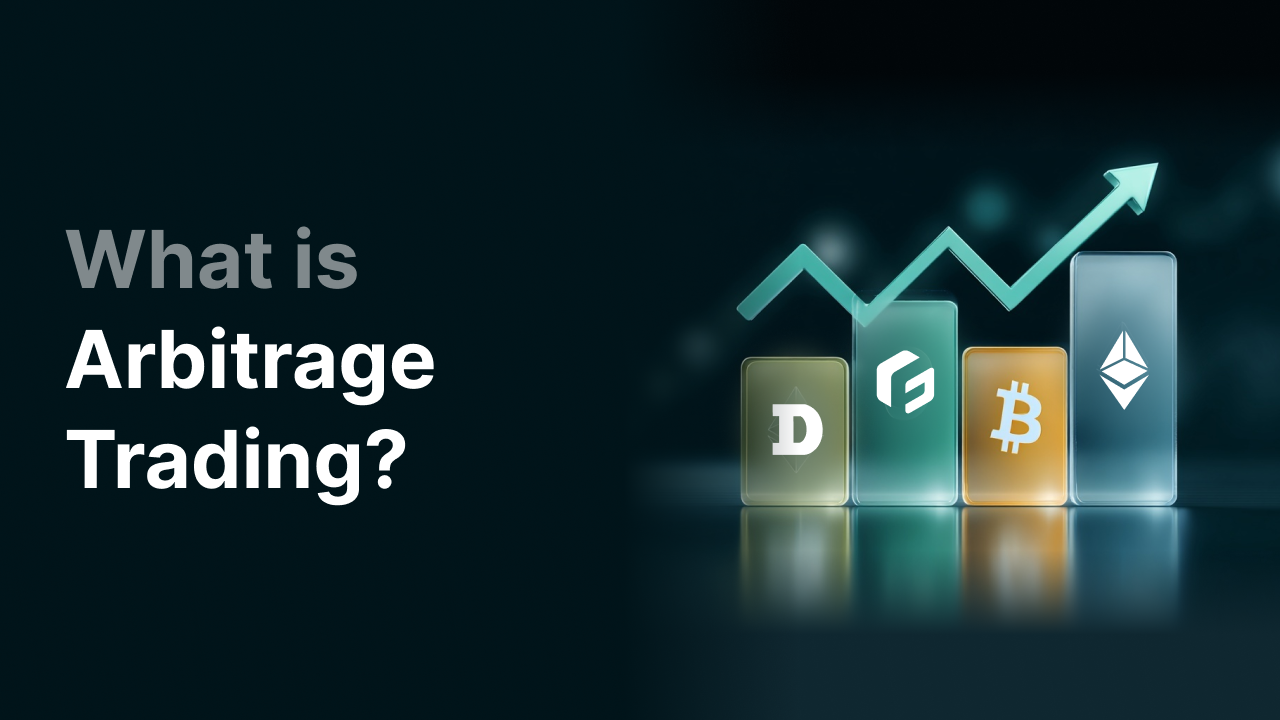What is BEP-20 and what can you do with it?

What is BEP-20?
BEP-20 is a token standard on the Binance Smart Chain (BSC). It is essentially a protocol that describes how digital tokens must be built and managed on the Binance blockchain. Tokens created according to the BEP-20 standard can be used and traded within the entire BSC ecosystem.
The BEP-20 protocol defines exactly how a token must function technically, ensuring it remains compatible with all applications on the network, such as dApps, digital wallets, exchanges and DeFi platforms.
BEP-20 is derived from Ethereum’s ERC-20 token standard but runs on the faster and more cost-efficient Binance Smart Chain. As a result, BEP-20 tokens benefit from lower transaction costs and higher processing speed compared to many ERC-20 tokens.
An additional advantage is that developers can easily create new tokens without extensive blockchain knowledge. Within the BEP-20 standard, different types of tokens can be created, such as Utility Tokens, memecoins, governance tokens and stablecoins.
Key Takeaways
- BEP-20 is the main token standard on the Binance Smart Chain (BSC) and defines how tokens are minted, transferred, burned and managed within the network.
- The Binance Smart Chain is a fast, low-cost and EVM-compatible blockchain on which BEP-20 tokens and smart contracts run.
- Thanks to the standardisation of BEP-20, developers can easily create new tokens, which stimulates innovation but also leads to risks such as scams and rug pulls.
- BEP-20 tokens are widely used across the BSC ecosystem, including in DeFi, NFTs, GameFi, metaverse economies and as a payment method.
- In addition to BEP-20, other important BEP standards exist, such as BEP-2, BEP-8, BEP-721 and BEP-1155, each serving a specific purpose within the Binance blockchain ecosystem.
What are the characteristics of BEP-20 tokens?
BEP-20 tokens have certain characteristics that ensure they operate smoothly and can be used seamlessly in dApps, wallets and other applications on the Binance Smart Chain:
1. Low transaction costs and high efficiency
The Binance Smart Chain is known for having low transaction costs (gas fees) and high speed. Although structurally similar to Ethereum, it is much faster and cheaper. This makes BEP-20 tokens suitable for applications with many transactions, such as gaming, DeFi and micro-payments. Transaction fees are not paid with BEP-20 tokens but with BNB. BNB is the native token of the BSC network.
2. Standardisation through mandatory and optional smart contract functions
The BEP-20 smart contract describes exactly which requirements a new token must meet to function reliably and consistently on the Binance Smart Chain. Together with optional smart contract functions, it describes how a token must and can behave within the network. This also creates transparency for the rest of the network regarding the token’s structure, which is important for potential investors. All data is open source and visible to everyone.
Some of the mandatory functions include:
- totalSupply() – the total supply of tokens.
- balanceOf(address) – the balance of a user.
- transfer(address, amount) – sending tokens to another address.
- allowance(owner, spender) – checking how much an external party is allowed to spend.
- approve(spender, amount) – granting a third party permission to send tokens on your behalf.
In addition to these mandatory functions, the BEP-20 protocol allows optional extensions that enable extra functionality, such as:
- transaction fees distributed among developers or a treasury
- minting and burning to keep supply dynamic, allowing new tokens to be created or removed later
- anti-whale mechanisms limiting large transactions
- pausing mechanisms to temporarily freeze a token during hacks, bugs or upgrades
Thanks to the standardisation of BEP-20 tokens, tokens always communicate in the same way with dApps such as DEXs or wallets. This ensures usability and allows tokens to be used safely across the ecosystem.
3. Easily create new tokens
Thanks to the standardised BEP-20 smart contract, developers can create new tokens easily. Little knowledge is required, and a new token can be launched within five minutes. This leads to many new tokens being created daily, including memecoins. The downside: malicious parties also constantly create new tokens to steal money, for example through rug pulls or pump-and-dump schemes.
Always research carefully whether a token is legitimate!
4. Support for different types of tokens
BEP-20 supports not only simple tradeable tokens but also more complex tokens with different purposes, such as:
- stablecoins (e.g., BUSD)
- governance tokens
- reward tokens
- wrapped tokens such as BTCB (Bitcoin on BSC)
- utility tokens for dApps (such as CAKE and BAKE)
5. Full compatibility with the Ethereum ecosystem
The BEP-20 standard is derived from Ethereum’s ERC-20 standard. As a result, BEP-20 tokens follow the same technical guidelines as ERC-20 tokens. This does not mean BEP-20 tokens can be used directly on the Ethereum network, but developers familiar with Ethereum can easily migrate their dApps and smart contracts to the Binance Smart Chain.
Since BSC is EVM-compatible, Ethereum applications, wallets and tools can be deployed almost one-to-one on BSC. This lowers the barrier for developers and promotes the adoption of both BSC and BEP-20 tokens.
What can you do with BEP-20 tokens?
BEP-20 tokens are designed to support a wide range of functions. Here is what you can do with them:
1. Pay and send tokens
Thanks to low transaction fees on the BSC network, BEP-20 tokens are ideal as a payment method and for sending tokens to other addresses.
2. Participate in DeFi
BEP-20 tokens are widely used in DeFi protocols. You can:
- participate in liquidity pools;
- lock tokens in yield farms;
- earn staking rewards;
- borrow or lend BEP-20 tokens via borrowing and lending platforms.
3. Trade or create NFTs
BEP-20 tokens are used to pay transaction fees and issue rewards for creating, holding or trading BEP-721 and BEP-1155 tokens (NFTs).
4. GameFi & metaverse economies
BEP-20 tokens play a central role in blockchain gaming on BSC. They function as:
- in-game currency;
- reward tokens;
- governance tokens.
5. Create your own tokens
Anyone can create BEP-20 tokens thanks to the simplicity of the protocol. With a small investment of €10 to €20 in transaction fees, your token can be live within a day. It will be directly compatible with dApps and easily tradeable on DEXs in the BSC ecosystem.
You can immediately configure all token specifications, such as name, , supply, minting, burning, personal allocation, or pausing mechanisms. Everything is recorded on the blockchain, which is open source, meaning everyone can view your choices. This is important for transparency and legitimacy.
Developers can also create more complex tokens with advanced tokenomics, reward structures, staking mechanisms, governance systems, burning models and fixed or dynamic supply.
BEP-20 vs Binance Smart Chain (BSC)
BEP-20 and the Binance Smart Chain (BSC) cannot exist without each other. BEP-20 tokens would not exist without the BSC. They belong to the same ecosystem but fulfil completely different roles. To understand how tokens and apps work on BSC, this distinction is crucial.
What is the Binance Smart Chain (BSC)?
The Binance Smart Chain is a blockchain on which smart contracts can be developed and executed. It is the infrastructure layer of the Binance ecosystem. The blockchain uses the Proof-of-Staked-Authority (PoSA) consensus mechanism. Smart contracts are written in Solidity, Ethereum’s programming language. This is possible because BSC is compatible with the Ethereum Virtual Machine. This allows developers to easily port applications from Ethereum to BSC.
BSC also validates transactions on the network (including BEP-20 transactions). This is done by validators, who earn the transaction fees paid in BNB.
What is BEP-20?
BEP-20 is a smart contract that serves as a token standard on the BSC. It is a set of rules describing how tokens must behave within the network, including how they are transferred, minted, burned and controlled.
In short:
- BSC = the blockchain
- BEP-20 = the token standard for new tokens
Without BSC, a BEP-20 token cannot exist. Without BEP-20, tokens would not have standardised functions, making interoperability impossible.
Which BEP protocols exist?
Besides BEP-20, the Binance ecosystem includes multiple token standards, each with a specific purpose. BEP stands for Binance Evolution Proposal. Here is an overview:
1. BEP-2
BEP-2 is the original token standard of the Binance Chain. The Binance Chain is the main network responsible for processing transactions. Together with BSC, it forms the Binance ecosystem. Unlike BSC, the Binance Chain does not support smart contracts, making it simpler and faster.
Characteristics of BEP-2:
- Token standard for Binance Chain (not BSC)
- Designed for speed and high throughput
- Widely used for tokens on the Binance DEX
- Focused on basic functions like sending and receiving assets
BEP-2 was the first major standard on the Binance blockchain, existing before BSC was introduced.
2. BEP-8
BEP-8 is a token standard designed for smaller or experimental projects. Developers can create tokens on the Binance Chain at very low cost and without advanced knowledge.
Characteristics of BEP-8:
- Designed for test initiatives and small projects
- Lower costs and simpler issuance than BEP-2
- Ideal for startups, community tokens or small-scale experiments
- Runs on the Binance Chain instead of the Binance Smart Chain
3. BEP-721
Like BEP-20, BEP-721 runs on the Binance Smart Chain. It is an NFT standard similar to Ethereum’s ERC-721. Each BEP-721 token is unique, making it ideal for tokenising art, cars and collectibles.
Characteristics of BEP-721:
- NFT standard for unique digital items
- Tradeable on NFT marketplaces and used as in-game items
- Supports metadata and ownership history
4. BEP-1155
BEP-1155 is a multi-token standard supporting both fungible and non-fungible tokens (NFTs) within a single smart contract. It is highly efficient and flexible, especially for gaming ecosystems.
Characteristics of BEP-1155:
- Multi-token standard similar to ERC-1155
- Supports multiple token types in one contract
- Reduces gas fees through shared management
- Ideal for gaming, metaverse assets, in-game currency and collectibles
Final thoughts
BEP-20 forms the backbone of the Binance Smart Chain ecosystem and has become one of the most important token standards in the blockchain world. Thanks to its clear and standardised rules, BEP-20 provides a reliable foundation for creating, managing and using tokens on BSC. The standard combines flexibility with ease of use: developers can easily launch new tokens, while users benefit from fast and low-cost transactions.
This has made BEP-20 an essential foundation for DeFi applications, NFT infrastructure, GameFi projects and numerous other digital economies. Although the accessibility of the standard encourages innovation, it also brings risks due to the rise of fraudulent token projects. Even so, BEP-20 remains a powerful and versatile token standard that plays a crucial role in the growth and adoption of the Binance Smart Chain.




